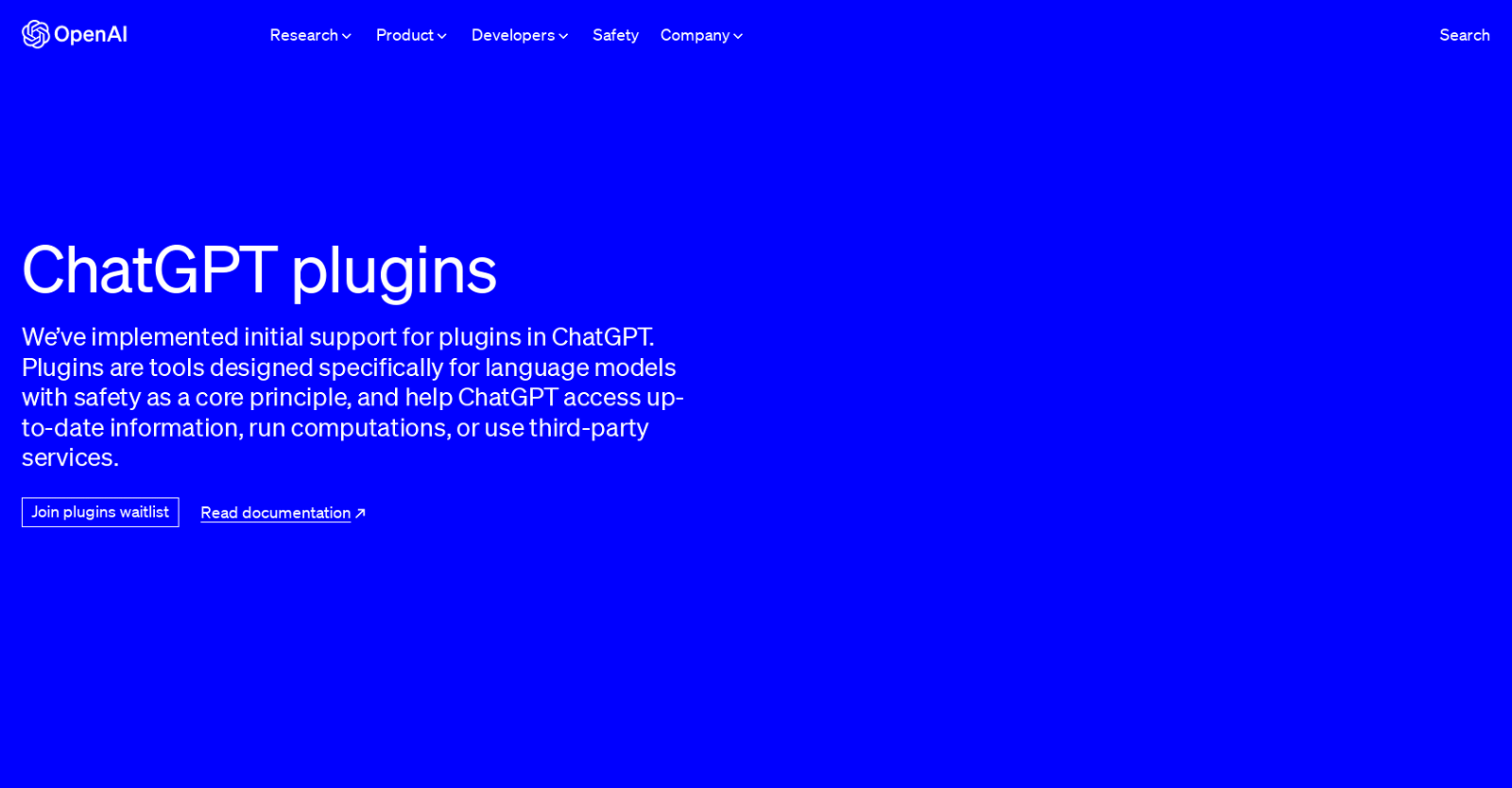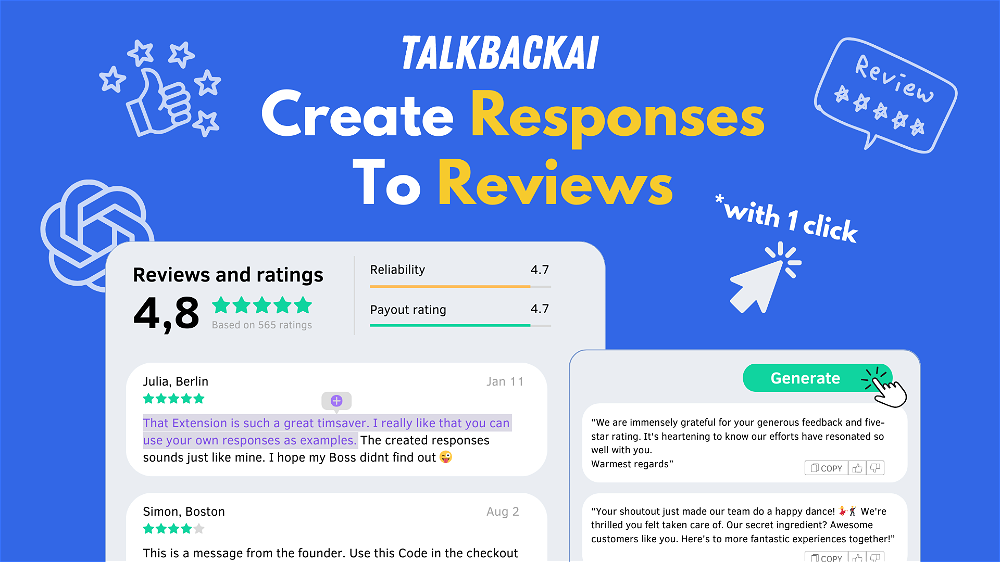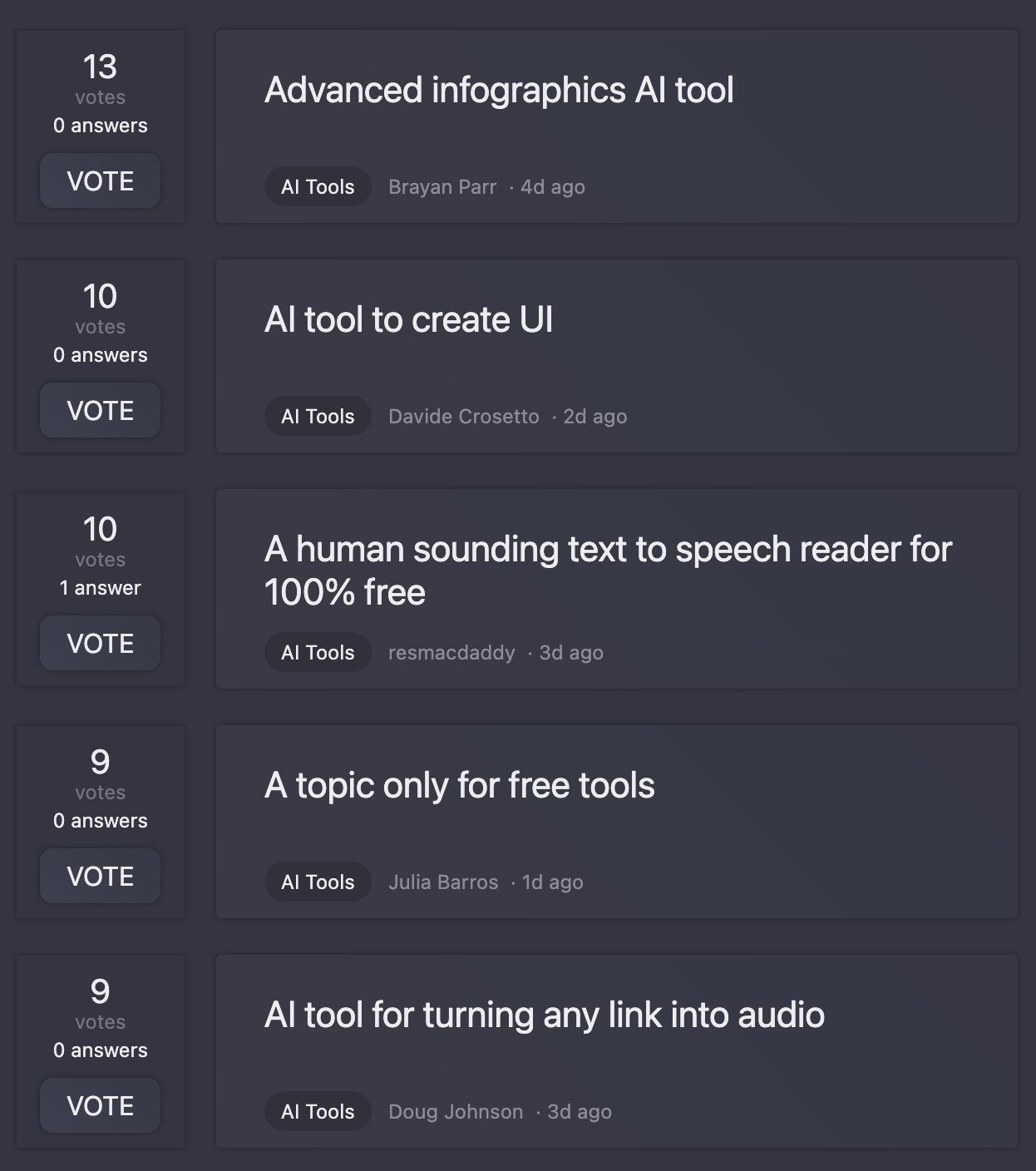What is the main purpose of ChatGPT plugins?
ChatGPT plugins are designed to provide additional functionality to ChatGPT, a language model AI tool. They can provide users with access to more personalized or specific information that is not included in the AI's training data, run computations, interact with third-party services, or access up-to-date information.
What companies have created the first set of ChatGPT plugins?
The first set of ChatGPT plugins has been created by leading companies such as Expedia, Klarna, Slack, Wolfram, and others.
What is the core principle in the design of ChatGPT plugins?
Safety is a core principle in the design of ChatGPT plugins. The plugins are being carefully and gradually rolled out to evaluate their impact, safety, and alignment challenges.
How do ChatGPT plugins enhance the functionality of language models?
ChatGPT plugins enhance the functionality of language models by giving them the ability to access more specific or personalized information that is not included in their training data. They can also enable the language model to run computations, access up-to-date information, or interact with third-party services beyond just emitting text.
Are these plugins available for all users, or are they being rolled out to a select group first?
The ChatGPT plugins are gradually being rolled out, starting with a small group of users. Over time, they will be made available to more users. Developers who have been invited from a waitlist can use the documentation provided to build their own plugins.
How can developers invited from the waitlist build their own plugins?
Developers invited from the waitlist can build their own plugins for ChatGPT using the provided documentation. They are also given the ability to self-host a plugin with the open-sourced code for a knowledge base retrieval plugin.
What is the purpose of the open-sourced knowledge base retrieval plugin provided by ChatGPT?
The open-sourced knowledge base retrieval plugin provided by ChatGPT serves to provide developers with the opportunity to augment ChatGPT with information they would like. Thus widening the knowledge base of the ChatGPT and making it more useful and specific.
What safety measures are being implemented in the design of these plugins?
From day one, the development of the ChatGPT plugins platform has been guided by the potential safety challenges. Specific safeguards have been implemented to ensure the safety and utility of the plugins. These include internal and external red-teaming exercises to identify and rectify possible concerning scenarios.
What third-party services can these plugins interact with?
ChatGPT plugins can interact with a range of third-party services. Some of the third-party services mentioned on their website include Expedia, Klarna, Slack, and Wolfram.
What forms of computations can these plugins perform?
Beyond just emitting text, these plugins can also enable the AI to run various computations, although no specific type of computations is mentioned on their website.
Are the plugins capable of providing up-to-date information?
Yes, part of the functionality of the ChatGPT plugins is providing the AI with access to up-to-date information. This could include current events, recent data, or updated third-party services.
How will these plugins shape the interaction paradigm between humans and AI?
ChatGPT plugins aim to offer the community an opportunity to shape the interaction paradigm between humans and AI. By enhancing AI's abilities to run computations, provide personalized information, and interact with third-party services, these plugins can broaden and refine the way humans interact and utilize AI technology.
Can developers self-host the ChatGPT plugins?
Yes, one of the features of the ChatGPT plugins is that developers can self-host them. For instance, the code for a knowledge base retrieval plugin has been open-sourced, giving developers the option to self-host this plugin.
How can the plugins act as 'eyes and ears' for language models?
Plugins can serve as 'eyes and ears' for language models by providing them access to more personalized or specific information that is not included in their training data. This could include up-to-date information, individual user data, or third-party services.
How do the plugins provide more personalized or specific information?
The plugins provide more personalized or specific information through their ability to access and interact with up-to-date information, third-party services, and more. They also offer the ability to run computations, providing additional context or data specific to a user's request.
How can developers use the provided documentation to build their own plugins?
Developers invited off the waitlist can use the provided documentation to build their own plugins for ChatGPT. These plugins are then listed in the prompt shown to the language model, along with instructions on how to use each plugin.
Can these plugins access information not included in their training data?
Yes, the plugins can access information that is not included in their training data. For instance, they can pull up-to-date information, interact with third-party services, or cater to more specific or personalized user requests.
Are there any open-sourced versions of these plugins?
Yes, the code for a knowledge base retrieval plugin has been open-sourced. Developers can use it as a base to build their own plugins or to self-host the existing plugin.
What are some common applications of these plugins?
ChatGPT plugins have a broad range of applications, including providing specific or personalized information to users, running computations, and interacting with third-party services. The actual applications can vary widely depending on the specific plugin and user request.
How can users control which plugins are enabled or disabled in their ChatGPT sessions?
On chat.openai.com, users can choose which third-party plugins they’d like to be enabled in their ChatGPT sessions. The documentation for the enabled plugins is shown to the language model as part of the conversation context, helping guide the AI on how to properly utilize the enabled plugins.













